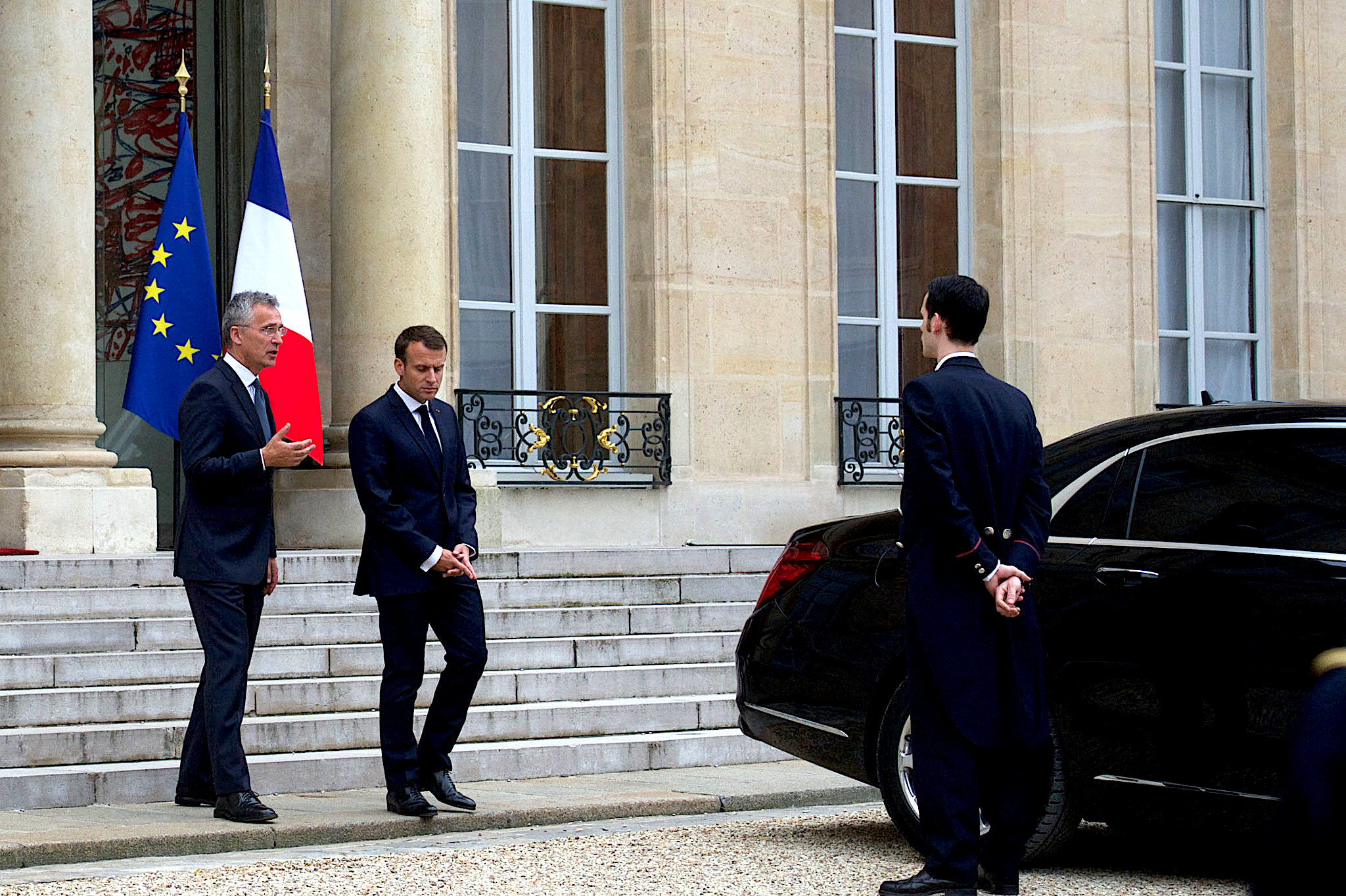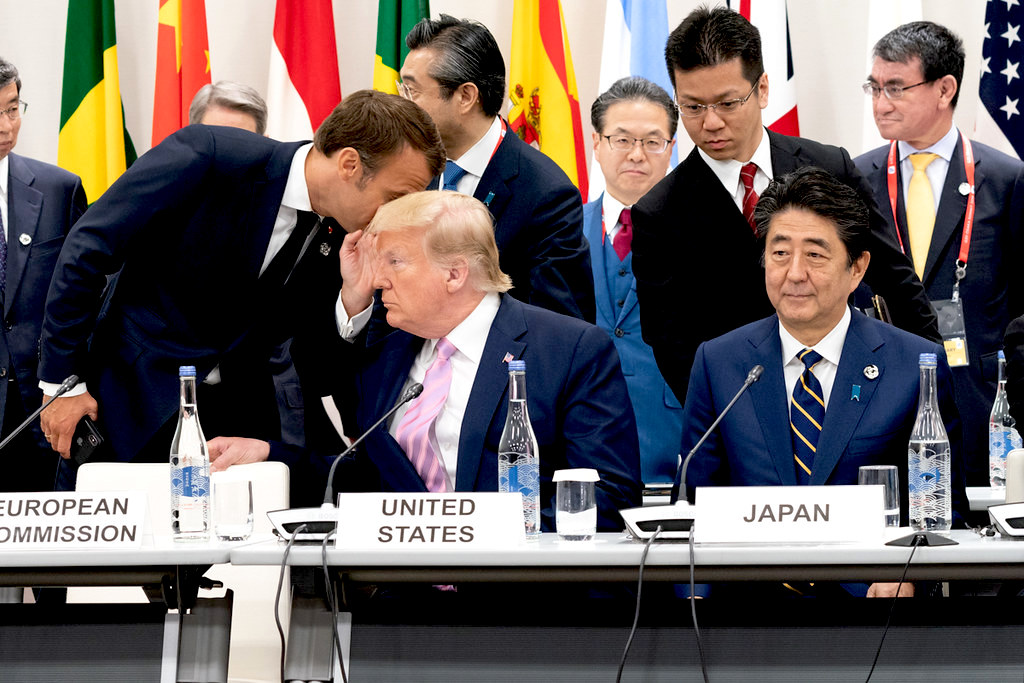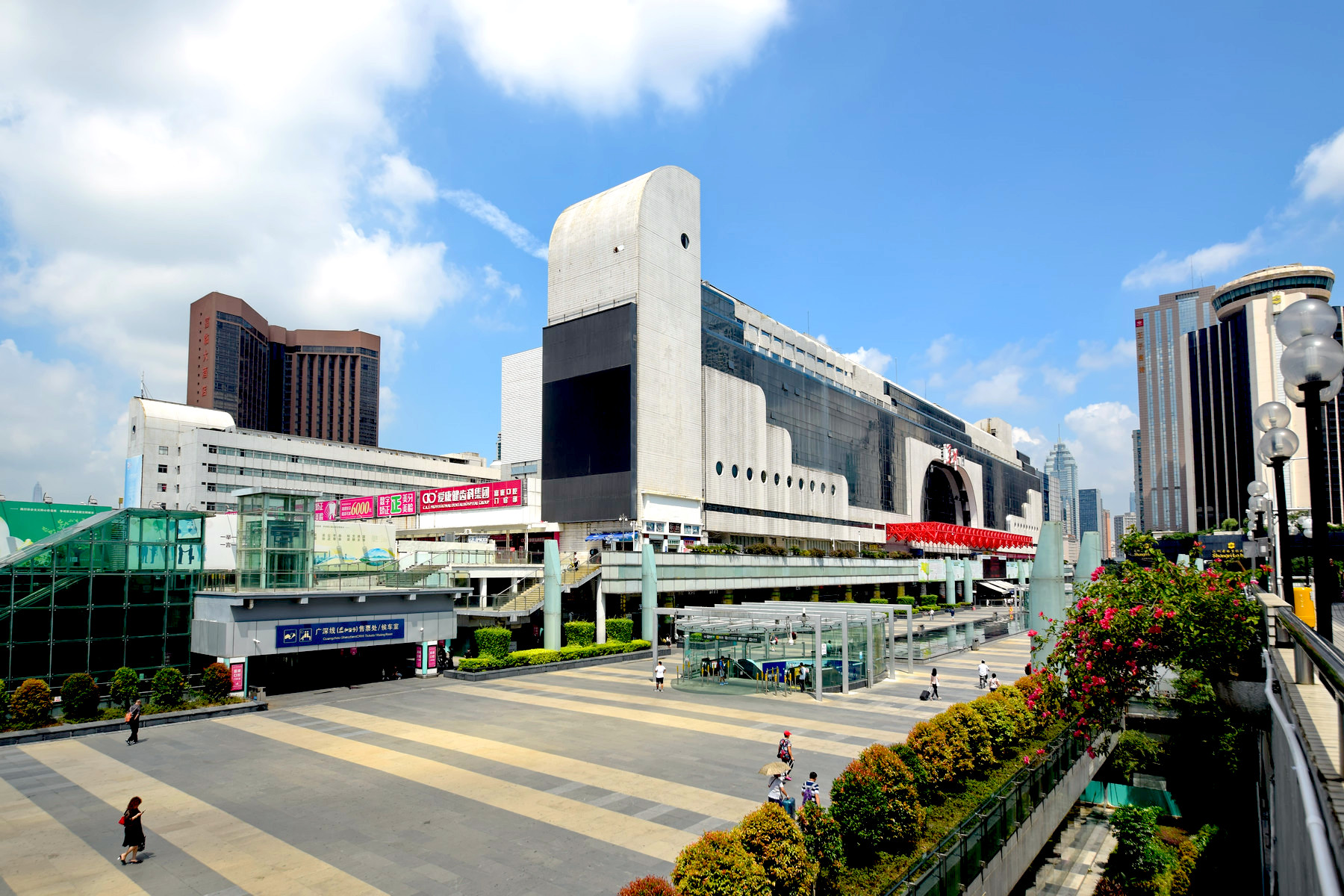PATRICK LAWRENCE: Macron’s Europe
France’s president has proven himself to be a well-oiled weathervane. What he says on Monday may not match what he says or does on Wednesday. But his remarks while visiting China are interesting in several ways.

NATO Secretary General Jens Stoltenberg, left, meeting with French President Emmanuel Macron in Paris, 2018. (NATO)
By Patrick Lawrence
Special to Consortium News
 Emmanuel Macron got poor reviews in major media, and from a few notably stupid European leaders, on his return last week from his three-day summit with Chinese President Xi Jinping. But are we going to content ourselves with reviews of the French president’s performance or consider the play? What do critics know, after all?
Emmanuel Macron got poor reviews in major media, and from a few notably stupid European leaders, on his return last week from his three-day summit with Chinese President Xi Jinping. But are we going to content ourselves with reviews of the French president’s performance or consider the play? What do critics know, after all?
I do not see that Macron’s high-profile, photo-opportunistic travels to Beijing and southern China were entirely a waste of jet fuel. Crawling cautiously out on a shaky limb, I’ll go so far as to suggest his unusually extended talks with Xi were net-positive.
And I’m taking into account the presence of the useless Ursula von der Leyen, head of the European Commission, who tagged along to get her ticket punched: European neoconservatives can call Xi all the names they want, but an encounter with the dictatorial, authoritarian, tyrannical, horrible-horrible Chinese leader seems to count as a notch on the holsters of Sinophobes such as von der Leyen.
Whatever else he is, Macron is neither a Sinophobe or a Russophobe. At times he betrays a touch of Gaullist Amerophobia, indeed.
I have to say straightaway that Manny Macron seems to me a political bimbo in almost all respects. He has made a godawful mess at home by forcing into law a pension reform plan that has had millions of citoyens in the streets for months. But this is another conversation.
On the foreign side, Macron has proven a well-oiled weathervane, and thus a great disappointment over the years. What he says on Monday may not match what he says or does on Wednesday.
But what he has said on various Mondays during his presidency includes some very worthy ideas: NATO has lost its way, Europeans share a common destiny with Russia, Europe must reclaim its autonomy and take care of its security itself.
Macron, indeed, reminds me of Donald Trump on these matters. It is a comparison Macron would detest and Trump would not understand, but both are capable of articulating bold foreign policy initiatives while lacking the character to give them substance, win acceptance for them and put them into practice.

French President Emmanuel Macron, left, whispering to U.S. President Donald Trump during a G20 meeting in June 2019 in Osaka, Japan. (White House/Shealah Craighead)
The press and the trans–Atlantic political cliques ordinarily ignore Macron when he does his I’m-the-next-de-Gaulle act. But not this time. There is too much at stake between the West and China these days: Beijing’s leverage over Moscow, real or imagined, on the Ukraine question, Europe’s role as the U.S. foments a crisis over Taiwan, the independence or otherwise of Europe’s relations with China and the new world order Xi and his top foreign policy officials have declared as the mainland’s priority.
Macron fairly leapt into all this as soon as he disembarked in Beijing on April 6. In his arrival speech at the Great Hall of the People, he appealed directly to Xi to exert his influence in Moscow. “I know I can count on you to bring Russia back to reason and everyone back to the negotiating table,” Macron said. The cause, he added, was “a durable peace that respects internationally recognized borders.”
These remarks are interesting in several ways.
A Suggestive Miscalculation
On one hand, Macron miscalculated. China has made it eminently clear that, if invited, it is willing to act as a mediator between Russia and Ukraine (and Kiev’s Western backers), but under no circumstance will it intervene into the sovereign affairs of the Russian Federation or any other nation. I wish Macron would spend more time doing his homework and less posing for historians and the sculptors of bronze busts.
On the other hand, the wording is subtly suggestive. “A durable peace” is one that would recognize Russia’s security concerns, which Washington and its pilot fish in Europe refuse to do. Respecting internationally recognized borders is a fine idea, all would agree, but Macron appeared to leave open what these would be when maps are drawn at the conclusion of negotiations.
And on the other hand — there are three in this case — Macron suggested quite openly that negotiating with Russia was as valid an undertaking as negotiating with China.
The French president’s “I know I can count on you” was wildly incautious: The Chinese leader was “inflexible in direct reply to French head of state,” as Le Monde put it. At the same time, Macron managed a nifty chime with Xi on the larger point. “Together with France, we appeal for restraint and reason,” Xi remarked during the Great Hall exchange, “in the quest for a political settlement and the building of a European security architecture that is balanced and lasting.”
A Side Trip
After extensive talks in Beijing, Xi took the unusual step of escorting Macron to Guangdong, the southern province where a lot of China’s manufacturing capacity is concentrated. There are a couple of things to say about this side trip, too. Three, actually.
One, Macron signaled his view that Europe’s relations with the People’s Republic should remain open and develop further on the economic side — an implicit rejection of Washington’s campaign to disrupt the extensive interdependence of economic ties between the West and China.
Two, we have to think about why Xi invested so much time in this encounter with the French leader. If I know Macron is an inconstant lightweight and you know the same, we can count on Xi understanding very well Macron’s character.
My reply: Xi’s intent was to demonstrate that Beijing remains open to developing a set of relations with Europe that amount to a common cause against America’s effort to line up the Atlantic world against China and, by implication, Russia. “Xi denounced ‘Cold War logic and the confrontation of blocs,” Le Monde’s correspondent, Claire Gatinous, reported from Beijing. Gatinous then quoted Xi saying, “China always considers Europe an independent pole in a multipolar world.”
Three, von der Leyen was not invited to Guangdong. Xi, we can confidently infer, wants to deal with European nations such as France and leaders such as Macron rather than the rigidly neoliberal European Union and ideologues such as the European Commission’s current president.
Show of European Autonomy
Whatever you may think of Macron, he went to Beijing to stand for an autonomous Europe that determines for itself its ties with the non–West’s premier power. It is net-positive, as I say. Europe’s relations with China continue to hang in the balance, and good enough for now.
Remember, Pedro Sanchez preceded Macron in Beijing for talks with Xi by a few days. It was a summit that drew much less attention, but the Spanish premier went out of his way to assert that Europeans should remain open to China’s recent emergence as a diplomatic power.
Macron’s days in Beijing were never going to get him a good press on his return to Paris. But he guaranteed critical reviews when he gave a much-noted interview to Politico on his flight from Beijing to Guangzhou. Here was Macron in full Gaullist flower, holding forth on European independence, reducing Europe’s dependence on the dollar and the Continent as a “third superpower” in a multipolar world.
“‘The great risk’ Europe faces,” Politico quoted Macron as saying, “is that it ‘gets caught up in crises that are not ours, which prevents it from building its strategic autonomy.’”
Then this:
“The paradox would be that, overcome with panic, we believe we are just America’s followers. The question Europeans need to answer … is it in our interest to accelerate [a crisis] on Taiwan? No. The worse thing would be to think that we Europeans must become followers on this topic and take our cue from the U.S. agenda and a Chinese overreaction.”
“If the tensions between the two superpowers heat up,” Macron concluded, “we won’t have the time nor the resources to finance our strategic autonomy and we will become vassals.”

Shenzhen Railway Station, Guangzhou-Shenzhen Railway, China, 2018. (Baycrest/CC BY-SA 2.5, Wikimedia Commons)
Western officials of Macron’s rank are far better off trafficking in euphemisms and the mythologies of the West’s unassailable superiority when in public than they are speaking with this kind of raw honesty. So it proved for Macron as he returned to Élysée Palace.
Roger Cohen, The New York Times’ Paris bureau chief, published an analytic piece under the priceless headline, “From Red Carpet to Doghouse: Macon Returns from China to Allied Dismay.” Priceless in part because it’s a lousy head, but priceless mostly because it is, if you’ll forgive me, bullshit.
As I have been traveling in Europe these past few weeks, it is perfectly clear to me that public opinion on the Continent tilts heavily in favor of the kind of Europe for which Macron speaks. Cohen’s doghouse is in Washington, not in Europe. Correspondent Cohen, who enjoys a deservedly fine reputation, here notes Macron’s use of “multipolar,” “vassals,” “Cold War mentality” and other such terms as if they are shocking transgressions. This is what it takes to get sent to the imperium’s doghouses, I suppose. Pitiful.
On the topic of pitiful, I cannot conclude this thought without mentioning Liz Truss, Britain’s blink-and-you-missed-her prime minister for 44 days last year. Having withdrawn in apparent embarrassment after she was yanked off stage with a cane, Truss is now back to reprise her Margaret Thatcher imitation.
“It was a mistake for Western leaders to visit President Xi and ask him to intervene in seeking a resolution to the conflict in Ukraine,” Truss said last week at the Heritage Foundation, which seems one of the only places Truss is still taken seriously. “I believe that was a sign of weakness. It’s also why President Macron is wrong to suggest Taiwan is not of direct interest to Europe.”
Liz Truss. I mean, really. It comes to this. These are the kind and caliber of people who are leading us disturbingly in the direction of global conflict.
I do not know what Macron intends to do with the worthy positions he articulated while in China talking to Xi and having a look at its industrial base. If the record is any guide, not much is our answer.
But I hope something.
It was a French anarchist in the 19th century who said, “To lead I had to follow.” Forget that, Manny. Stay with your thinking on these questions, if it is your thinking.
Patrick Lawrence, a correspondent abroad for many years, chiefly for the International Herald Tribune, is a columnist, essayist, lecturer and author, most recently of Time No Longer: Americans After the American Century. His new book Journalists and Their Shadows is forthcoming from Clarity Press. His Twitter account, @thefloutist, has been permanently censored. His web site is Patrick Lawrence. Support his work via his Patreon site. His web site is Patrick Lawrence. Support his work via his Patreon site.
The views expressed are solely those of the author and may or may not reflect those of Consortium News.




Geen opmerkingen:
Een reactie posten